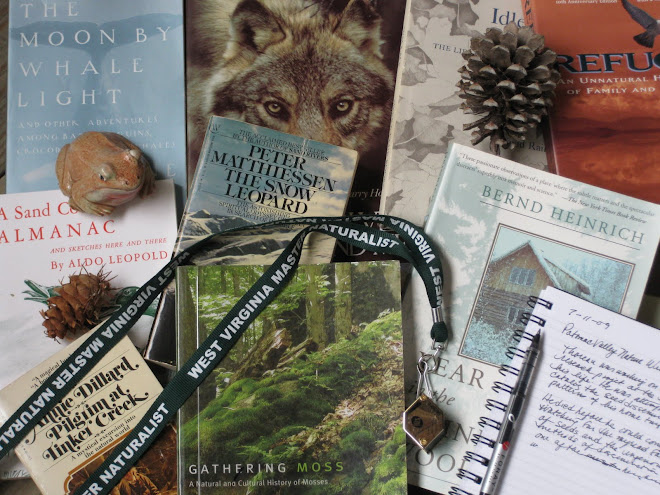
Alice Outwater's Water: A Natural History will be the topic for our meeting on February 27 (See details at left.) Alice Outwater is an environmental engineer and the coauthor, with Larry Gonick, of The Cartoon Guide to the Environment. A little web surfing indicated that Outwater used to live in Vermont but now lives in Colorado and you can read her personal blog Beside the Stream: Country Life at 7000 Feet here: FROM THE BACK COVER of Water: A Natural History: In Water: A Natural History environmental engineer Alice Outwater takes us on a journey that beings five hundred years ago, back to the wardrobe records of kings of France and the diaries of the first Western explorers, to recover a lost knowledge—how the land cleans its own water.  Water moves from the reservoir to the toilet, from the grasslands of the Midwest to the Everglades of Florida, through the guts of a wastewater treatment plant and out to the waterways again. Step by step we come to learn what should have been obvious from the beginning: a complex ecological system long kept American water remarkably clean but we have randomly removed necessary components from it… Water is the unforgettable story of the symbiosis that existed between the country’s water, the land from which is springs, and the life the two can support together.
Water moves from the reservoir to the toilet, from the grasslands of the Midwest to the Everglades of Florida, through the guts of a wastewater treatment plant and out to the waterways again. Step by step we come to learn what should have been obvious from the beginning: a complex ecological system long kept American water remarkably clean but we have randomly removed necessary components from it… Water is the unforgettable story of the symbiosis that existed between the country’s water, the land from which is springs, and the life the two can support together.
 Water moves from the reservoir to the toilet, from the grasslands of the Midwest to the Everglades of Florida, through the guts of a wastewater treatment plant and out to the waterways again. Step by step we come to learn what should have been obvious from the beginning: a complex ecological system long kept American water remarkably clean but we have randomly removed necessary components from it… Water is the unforgettable story of the symbiosis that existed between the country’s water, the land from which is springs, and the life the two can support together.
Water moves from the reservoir to the toilet, from the grasslands of the Midwest to the Everglades of Florida, through the guts of a wastewater treatment plant and out to the waterways again. Step by step we come to learn what should have been obvious from the beginning: a complex ecological system long kept American water remarkably clean but we have randomly removed necessary components from it… Water is the unforgettable story of the symbiosis that existed between the country’s water, the land from which is springs, and the life the two can support together. FYI, Water gets 4.5 stars out of 5 in ratings by readers on Amazon. One reader comments “Aldo Leopold would recommend this book!” IMO, an excellent companion activity to reading this book is working on the watershed section of the Audubon society’s Do You Know Your Ecological Address?
Readers, please add info from your own research or reading of this book by commenting on this blogpost! Or email to pvnaturewriters@gmail.com and I will post!
Your fearless leader and humble servant.



